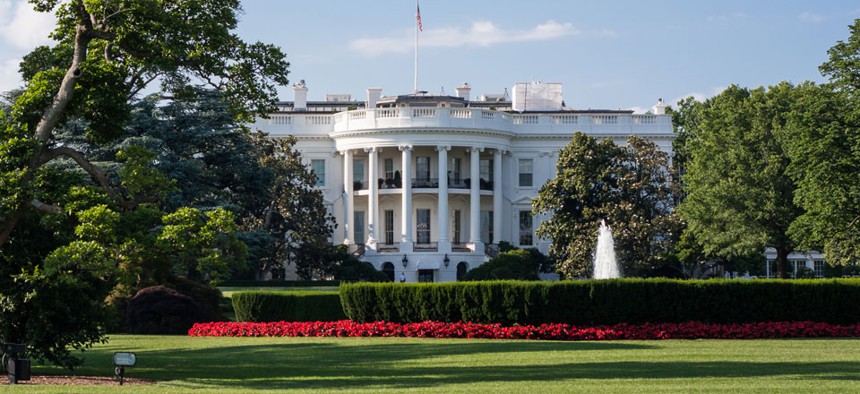
Kevin Grant/Shutterstock.com
Republicans, White House in Talks Toward Big Fiscal Deal
Country is set to hit its debt limit this fall.
At least a dozen Republican senators are regularly meeting with President Obama’s top aides in an attempt to plot a way forward on the looming fiscal challenges facing leaders this fall, senators involved in the meetings tell National Journal.
The meetings, which began after Obama hosted GOP senators for dinner earlier this year, are the first sign that Democrats and Republicans are in talks to strike a deal that would reduce the deficit and reform entitlements and taxes.
“Everybody's trying to assess whether we can accomplish something that would be big,” said Republican Sen. Richard Burr of North Carolina, who has attended the meetings. “Big is reforming entitlements and it’s impossible to see a path where you get additional revenue without tax reform being part of it.”
This fall, the country will hit its debt limit and be unable to pay its bills unless Congress authorizes additional borrowing. Republicans plan to use the debate over raising the debt limit to force Democrats to cut spending—a negotiation Obama has said he won’t engage in. But these meetings demonstrate that the president is in fact engaging Republicans in a broader discussion about debt and spending.
White House Chief of Staff Denis McDonough runs point and has included Office of Management and Budget Director Sylvia Mathews Burwell in the discussions. The Republicans in the group include Sens. Kelly Ayotte of New Hampshire, Saxby Chambliss and Johnny Isakson of Georgia, Bob Corker of Tennessee, Lindsey Graham of South Carolina, John Hoeven of North Dakota, and Burr, said John McCain of Arizona, who also sits in.
The group has met four or five times in the last six weeks. The talks are, as McCain put it, still in the “embryonic stage” and so far have consisted of identifying the dividing lines between the two sides.
“My hopes are that we could agree on what the deficit is and then begin formal negotiations with the White House. There are already a lot of informal conversations going on,” McCain said.
The differences between the two sides, which helped kill a grand bargain between Obama and GOP House Speaker John Boehner last year, remain vast. Namely, Republicans want to see tax and entitlement reform while Democrats want more revenue.
“We clearly defined what the differences are. That was probably the easy part. Trying to figure out how to bridge those is a tougher part but it’s really not dissimilar to the conversations that the speaker had with the president,” Burr said.
An administration official said White House aides have made clear to Republicans that the president’s offer from December—including $600 billion in new tax revenue for $400 billion in Medicare and other health care cuts—still stands.
Republicans are open to $600 billion in revenue, Burr said, but want to see it come from a mix of entitlement and tax reform. And the GOP opposes Obama’s $400 billion in Medicare cuts, arguing they want more structural reforms.
And while they have a way to go, Burr said both sides recognize that it gets tougher to cut a grand bargain as time passes.
Senate Minority Leader Mitch McConnell is encouraging the conversations, a GOP aide said.
Even if Republican senators were able to come to an agreement with the president, it would have to work its way through the legislative process and could still die in the House.
Republicans noted that the president elevated the issue to his chief of staff, who, Burr said, “has a lot of credibility with Republicans as a straight shooter. That’s important.”
“You can’t accomplish big things in Washington without a level of trust between both parties. That’s in the process of trying to be rebuilt,” Burr said. “It doesn’t exist right now. And I think this is the best formula to try to rebuild it. The jury’s still out as to whether we can accomplish it."






